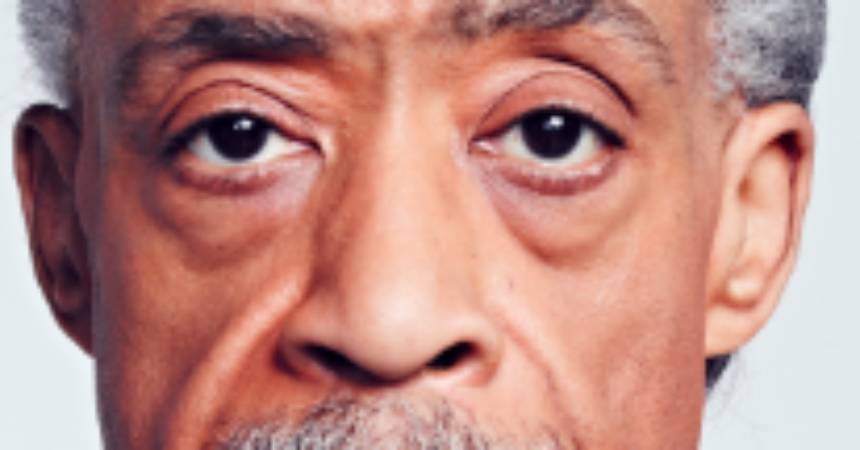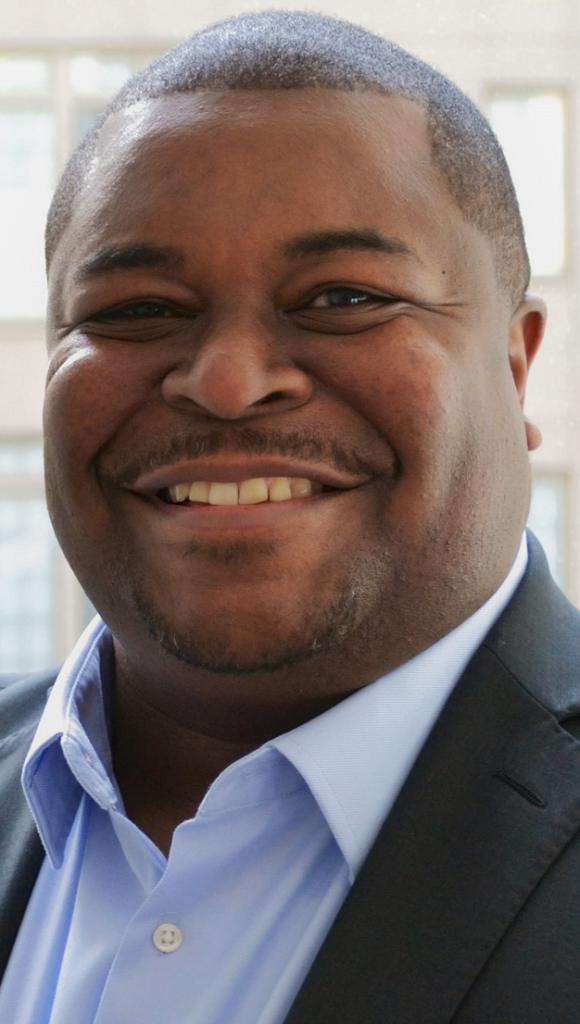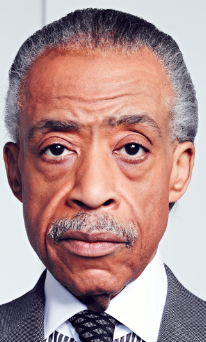
On march on Washington anniversary, civil rights leaders redouble fight for America

Damon Hewitt 
Rev. Al Sharpton
By Barrington M. Salmon
TriceEdneyWire.com
Representatives of America’s Civil Rights legacy organizations sounded the alarm and issued a call to arms last week as they observed the 59th anniversary of the historic March on Washington which brought more than 250,000 people to the National Mall to hear The Rev. Dr. Martin Luther King Jr. and other leaders press their demands for jobs, justice and equality.
Then as now, the leaders said, African Americans are demanding that the federal government specifically, and mainstream America more generally, deliver on their still unfulfilled promise to Black people and afford them full rights of citizenship. But the group spoke in blunt terms about the unique and significantly greater threat to African-Americans posed by White nationalists, White domestic terrorists, Trumpists, MAGA (Make America Great Again) supporters and Republican elected officials.
“The last two years have shown, in stark clarity, that our democracy, as our colleagues have said, is under sustained and unrelenting attack,” said Damon Hewitt, president and executive director of the Lawyers’ Committee for Civil Rights Under Law. “Recording of voting laws at the state level that restricts access to the ballot and dilutes the voting strength of Black and brown voters in so many states, courts that continue to chip away at laws designed to protect ballot access and also ignoring decades of precedent around issues ranging from reproductive rights to voting rights.”
Melanie Campbell, president and CEO of the National Coalition on Black Civic Participation, and convener Black Women’s Roundtable, expressed her alarm and deep concern.
“In ’63, the March on Washington for Jobs and Justice was also a collective response by Civil Rights organizations to fight back against racism, hatred and repression that had long plagued and terrorized Black people for decades,” she said. “So here we are today once again, finding our rights and freedom are under attack and our democracy is under threat …”
The assortment of perils facing Black Americans, and all Americans, includes the rolling back of constitutional and other rights by the far-right US Supreme Court and other right-leaning courts, suppression of voting rights by Republican-dominated state legislatures, the denial of women’s reproductive rights in almost half the states in the country, as well as the “historic” rise of White supremacy and attacks on democracy and rule of law “by racists, white nationalists and insurrectionists,” Campbell explained during Sunday’s virtual media briefing on the policy agenda for civil rights, democracy, and economic opportunity.
But Campbell and the other leaders from the National Urban League, National Action Network (NAN), the NAACP, NAACP Legal Defense Fund, Lawyers’ Committee for Civil Rights Under Law, the Leadership Conference on Civil and Human Rights, and National Council of Negro Women (NCNW) asserted that they would not back down against racists and bullies and promised to work collectively and fight as if their lives depend on it. Which it does, they said.
Morial, Campbell, the Rev. Al Sharpton and their colleagues said they will protect the vote and fight back against efforts to intimidate or coerce voters. This moment in American history requires it during “this period of crisis and this great state of emergency,” Morial said.
“On Jan. 6, we saw the use of violence. Let me underscore this – the attack on democracy now represents violence and the threat of violence against Secretaries of State, elections officials and others,” Morial said. “We come today because the fact pattern that I’ve outlined, as Rev. Sharpton said, demonstrates that this attack on American democracy is unprecedented in modern times and we commit: we commit our resolve, our energy, our organizational ability, our moral power and everything we can to protect, defend and promote American democracy. And to mobilize the largest coalition of people of goodwill to protect and defend American democracy. We will not rest on this anniversary.”
The fact pattern of which Morial spoke detailed the deliberate and unrelenting attacks on African Americans in political, judicial and social spheres, which predates former President Donald Trump. This includes the Supreme Court gutting key provisions of the landmark Voting Rights Act which allowed states to enact a raft of voter suppression and voter nullification laws to restrict and constrain the Black vote in what many critics describe as “the New Jim Crow.”
As the American Civil Liberties Union notes, the Voting Rights Act was a tool that would enforce voting rights guaranteed by the Constitution, and to secure that right for African- Americans and non-Whites across the country. It provided crucial protection for Black Southern voters. Until 2013, “the VRA has stood as a bulwark against racially discriminatory voting practices and paved the way for 45 years of progress on voting rights. But over the last decade, instead of protecting the VRA and expanding access to the ballot box, the Supreme Court and courts across the country have dismantled and gutted crucial parts of the VRA,” Morial said.
All of the speakers said that although at different times in the US, political pundits and observers have called other elections the most important of that time, they reiterated that the November 2022 midterms will be the most consequential in American history because it will determine if American remains a constitutional Republic, remains a democracy or if the country falls into the hands of racists, White supremacists, White nationalists, anti-democratic elements and enemies of the rule of law. Rather than just wringing their hands though, the Civil Rights/social justice activists said they will be embarking on a period of activism.
Hewitt said the plan going forward is “to build on the efforts of Black voters across the country and the multiracial, multi-generational coalition that revitalized the movement for racial justice following George Floyd’s death.” There are a number of ways the Civil Rights coalition plans to push this effort forward. For example, Maya Wiley said, the “Power to the Polls campaign will sign up poll workers and others to man polling stations. She said staff on the ground is working to make sure more people show up to participate in fair elections; stepping up voter education and registration on the ground in rural Georgia and Florida.
“We all have our roles. It’s not just where we’ve been, it where we are. We are the majority, said Wiley. “We and our allies will be in every nook and cranny where people need help learning where and how they can vote, encouraging people to be neutral poll workers, not nefarious plants, and to ensure Black people, young people, women, all of us, understand just how much power we have when we show up at the polls, even when they close our polling places, deny us water, and threaten us with violence.”
Wiley, newly installed president and CEO of The Leadership Conference on Civil and Human Rights, said it’s imperative that African Americans also hold elected officials accountable.
“We also need federal judges that protect our fundamental rights. With the upcoming midterm elections, it is crucial that everyone ensures they are registered to vote and exercises that fundamental right. Together, we will not go back to the dark days of reigning White supremacy and build a country that lives up to its ideals,” she said.
Janai Nelson, director-counsel of the NAACP Legal Defense and Education Fund, who said democracy is in flux and being pulled by progress and polarity, assured the media that the majority of Americans embrace progress, rule of law and fairness. She cited the example of what New York state legislators are doing with the Voting Rights Act as “one of the areas of progress and victory. They have introduced legislation to the pre-clearance provision.
“Their inaction is not the end of story,” she said, referring to the US Senate and Senate Minority Leader Mitch McConnell who have blunted every effort of Democrats to pass voting rights protections. Meanwhile, Nelson said activists continue to raise the awareness to family and friends overwhelmed by day-to-day living.
“We’re working on some of the messaging, focusing on communities usually left out. We’re building to an election,” said Nelson. The NAACP has launched a Peer-to-Peer campaign targeting 300,000 people and getting them to the polls, Johnson said, with staff using emails, texts, and calls – ‘neighbor talking to neighbor’ to get African Americans to the polls.
“Elections are won in inches not miles,” he said. “We’re looking at doing that in statewide races. Social justice isn’t a competition, we just have to get involved.”
Morial said the NUL organized training in six states, trying to “touch friends, relatives, family members (and) channel outrage and anger in the midterms.” Campbell said her organization’s Unity Voting Campaign ‘22 is geared to maximize collective power, focusing on women and young people and ensuring that people check their voting rights status today because so many states which enacted voter suppression measures that have new provisions or which may be confusing. And Sharpton said NAN is focusing on the ground in five states – Florida, Ohio, Georgia and North and South Carolina where there will be townhall meetings, his radio show, and using church networks around the country checking voter registration, new laws and challenges.
“We will continue to strengthen that – knocking on doors by leaders and faith leaders,” Sharpton said.
Thelma Thomas Daley, chairwoman of the National Council of Negro Women, said her organization would provide the foot soldiers to knock on doors, educate and register residents, help them get to the polls and do whatever else is needed to ensure that candidates seeking to protect and preserve democracy win at the polls in November.







